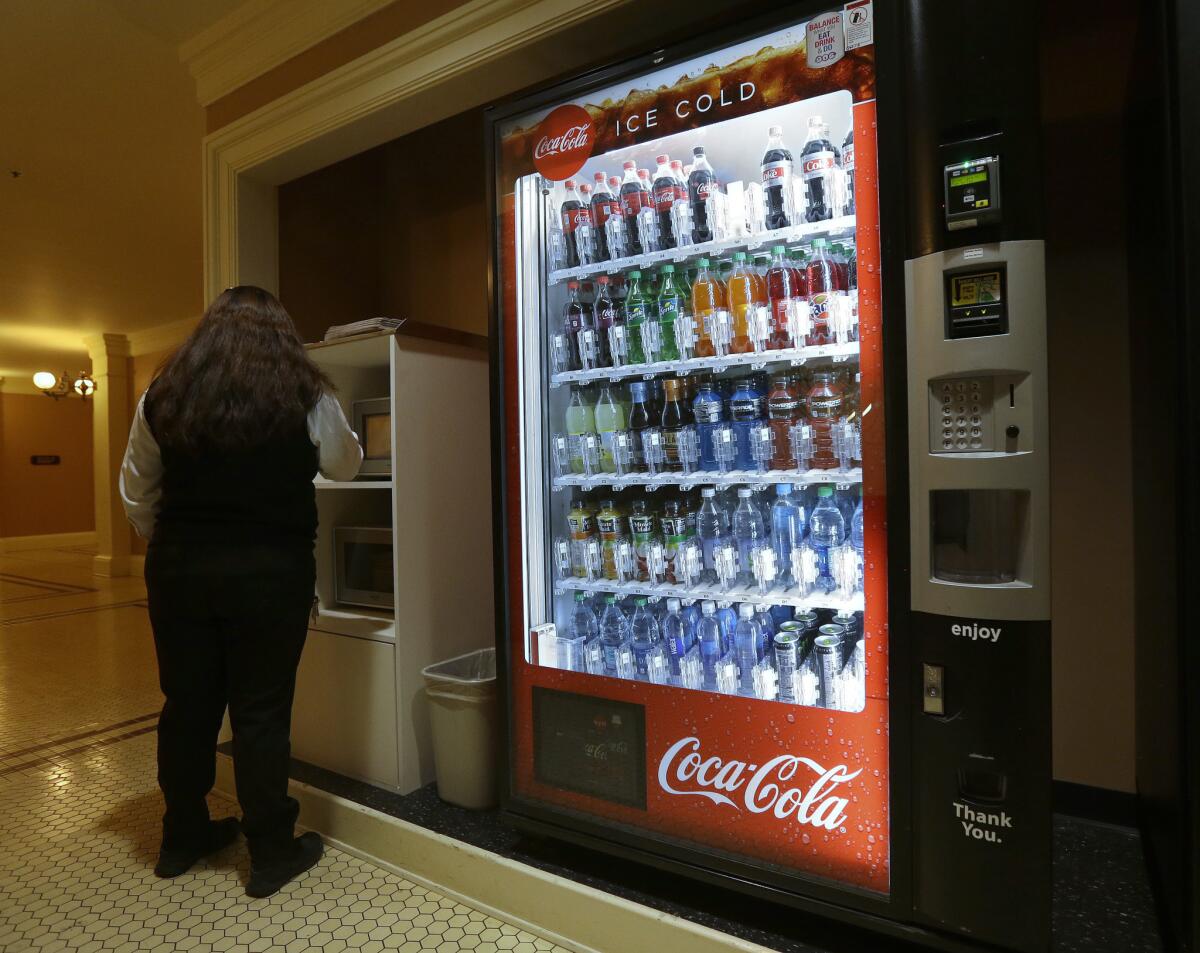Capitol Journal: Sacramento wants to tax soda, tires, guns, water, pain pills, lawyers, car batteries...

- Share via
Reporting from Sacramento — To plagiarize T.S. Eliot, April is the cruelest month. But not for the reasons the poet wrote. Rather, for all the taxes.
And there are bills in the Legislature to make taxes sting even worse.
By April 10, Californians must pay their local property taxes. Five days later is the deadline for filing state and federal income tax returns. Also, the state and the feds want any initial pre-tax payment that’s required on current earnings.
So tax collectors get three swings at us this month.
It’s a perfect storm for millions of Californians because of the federal tax overhaul enacted in 2017 by the Republican Congress and President Trump. For the first time, deductions for state and local taxes on federal returns are limited to $10,000. That’s much less than Californians have been deducting in this high-tax state.
Making the bite even sharper for salaried employees who receive a W-2, non-reimbursed job expenses are no longer deductible on federal returns. That hits teachers particularly hard because they often buy their own classroom supplies and have been deducting the costs.
So blame that tax shaft on Trump and Republicans.
But in California under Democrats, it’s tax, tax, tax — a drip and a drop, nickel and a dime — all the time. That’s not a political statement. It’s a fact.
Not all taxes are evil. Some are justified. But many are unwarranted. And others are eye-rollers.
One of the more controversial and annoying taxes currently being proposed is a state levy on sugary soft drinks. More on that later.
Here’s an eye-roller: A bill that would authorize San Francisco to turn its crooked Lombard Street — a tourist attraction after so many movie appearances — into a toll road, maybe even requiring reservations. Think they have a traffic jam now on weekends? Wait until cars are lined up behind a tollgate.
There are a whole bunch of taxing ideas in the Capitol: on new tires, firearms, water, prescription painkillers, lawyers, car batteries, corporations based on their CEO pay, estates worth more than $3.5 million, oil and gas extraction. The list goes on.
The oil and gas extraction tax is long overdue. We’re the only major oil-producing state without one. It would raise an estimated $1.5 billion a year.
The California Tax Foundation has counted more than $6.2 billion worth of tax increase proposals pending in the Legislature. It expects the figure to grow substantially as bills are amended with details.
Polls show that California voters already think they’re overtaxed. No surprise there.
When voters were asked recently by the Public Policy Institute of California whether they paid more or less state and local taxes than they should, the answers were: more 63%, the right amount 32%, less 4%.
Asked whether the federal tax changes had a positive or negative effect on their families, voters replied: positive 18%, negative 35%, no effect 42%.
“As the April 15 deadline looms, many Californians are complaining about the state and local tax systems and the impacts of recent changes in federal law,” PPIC President Mark Baldassare says.
“What part of ‘tax fatigue’ don’t these lawmakers understand? It’s political malpractice,” asserts Democratic consultant Steve Maviglio, referring to the proposed soda tax that he’s fighting against on behalf of the beverage industry.
The bill, AB 138, is being carried by Assemblyman Richard Bloom (D-Santa Monica) with backing from the California medical and dental associations. It would hike the tax on sugary soda by 2 cents an ounce, or 24 cents for a 12-ounce can.
That would raise around $3 to $4 billion a year to spend on health programs.
But the tax’s main purpose, backers say, is to discourage unhealthy soda drinking by raising the price — just as California has done by jacking up tobacco taxes.
“Children are consuming over 30 gallons of sugary drinks every year,” the sponsors’ pitch reads. “About half of adults and two-thirds of youth consume a sugary drink every day.”
“Sugary drinks are the single largest source of added sugars in the American diet,” the pitch continues, leading “to increased risk of diabetes, heart and liver disease, obesity, tooth decay and some cancers.”
There also are other anti-soda bills pending. One is an anti-“Big Gulp” measure that would ban soda containers larger than 16 ounces. Another is a prohibition against grocery stores stocking sugary drinks near the checkout counter.
“Soda consumption is going down on the natural while obesity is increasing,” counters Dana Williamson, who was a political advisor for former Gov. Jerry Brown and now is a strategist for the beverage industry. “There doesn’t seem to be a connection between the two…
“We’re singling out one product without looking at others. There’s far more sugar in some other products, like candy.”
Right. How about chocolate shakes, cotton candy and other yummy stuff sold at the ballpark?
At least they have some nutritional value, the anti-soda lobby answers.
Both sides in the fight — beverage and medical interests — are major political donors in the Capitol.
Meanwhile, there’s a legislative proposal to lower the marijuana tax. We want more potheads but fewer soft drink sippers. Crazy.
It smacks of too much nanny state for me.
The state should just leave us alone sometimes. Back off on tax, tax, tax. April hits hard enough.
Follow @LATimesSkelton on Twitter
More to Read
Get the L.A. Times Politics newsletter
Deeply reported insights into legislation, politics and policy from Sacramento, Washington and beyond. In your inbox twice per week.
You may occasionally receive promotional content from the Los Angeles Times.











